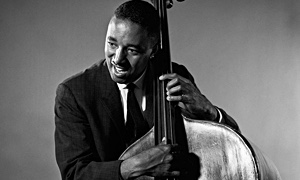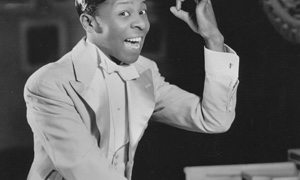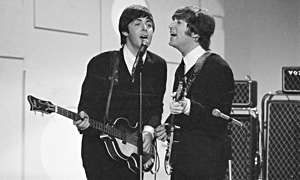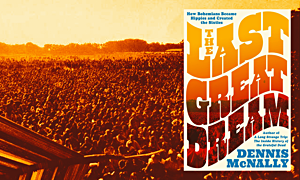Home » Jazz Articles » Book Review » Bass Notes: Jazz In American Culture, A Personal View
Bass Notes: Jazz In American Culture, A Personal View
Let°ѓs face it°™we all want to read about Bill Evans. I know I did. The book does not disappoint. Chuck played with him over six years and made some classic recordings that I studied when I was starting out.
 Bass Notes: Bass Notes: Jazz In American Culture, A Personal View
Bass Notes: Bass Notes: Jazz In American Culture, A Personal View Chuck Israels
240 Pages
ISBN: 1493074849
Backbeat Books
2024
Chuck Israels developed musically in what many would say was an extremely fertile time in Jazz. I'm talking about the 1960s. Of course, his stint with

Bill Evans
piano1929 - 1980
In Bass Notes, Israels has written a book that is aimed at anyone interested in music, as experienced by someone who played and recorded with many of the jazz greats, folk greats, and Broadway stars of their time. Yes, he has done all of that.
Starting with his childhood, he seemed to always be surrounded by the arts in one way or another due to his parents. They presented concerts, and Chuck talks of so many great musicians rehearsing and being in his house. Imagine,

Pete Seeger
banjo1919 - 2014

Lead Belly
guitar and vocals1888 - 1949
After high school he was accepted to MIT, but by now we know that wasn't going to stick. It is an interesting narrative though. He tells a lot of stories about recordings and gigs and is brutally honest. His early recording with

Cecil Taylor
piano1929 - 2018

John Coltrane
saxophone1926 - 1967

Bud Powell
piano1924 - 1966
Chuck talks a lot about the musicians he worked with, and sometimes he's negative and sometimes positive. I know and have played with many of the same musicians he speaks about and I have to agree with his assessments. I also have to applaud him for talking the same about himself. He admits when he did the wrong thing and praises himself when he came through.
Let's face it—we all want to read about Bill Evans. I know I did. The book does not disappoint. Chuck played with him over six years and made some classic recordings that I studied when I was starting out.
In this book he goes into great detail about how he got the gig, Bill's addiction, recordings, concerts, and even some unflattering sides to Mr. Evans. He talks about the interaction of the trio, and the effect on the group's sound and feel of the different drummers who came and went during his tenure. You will also learn how much Mr. Israels loved Bill Evans, how much he had wanted to play with him after he first met him and played for him while still in college. Playing with Bill Evans, replacing deceased bass prodigy

Scott LaFaro
bass1936 - 1961
Chuck says, "Bill's playing was extraordinarily rhythmic—forceful and precise—swinging like crazy and, at the same time, colored with dynamic gradations and nuances of touch, tone and articulation.
Later in the book he talks of his national Jazz Ensemble which he led from 1973-1981.
This book is also a soap box for his opinions on jazz education, "free" music and what is lacking as well as what is working. He goes into great detail and he's thoroughly prepared to make his case. When he talks about an important, but overlooked bassist:
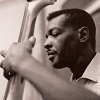
Tommy Williams
bassThis is an important book and I've learned from it, and if you read it with an open mind and an open heart, so will you.
Tags
Book Review
Harvie S
Peter Rubie
Backbeat Books
Chuck Israels
Bill Evans
Pete Seeger
Leadbelly
Cecil Taylor
John Coltrane
Bud Powell
Scott LaFaro
Tommy Williams
Bill Johnson
Comments
PREVIOUS / NEXT
Support All About Jazz
 All About Jazz has been a pillar of jazz since 1995, championing it as an art form and, more importantly, supporting the musicians who make it. Our enduring commitment has made "AAJ" one of the most culturally important websites of its kind, read by hundreds of thousands of fans, musicians and industry figures every month.
All About Jazz has been a pillar of jazz since 1995, championing it as an art form and, more importantly, supporting the musicians who make it. Our enduring commitment has made "AAJ" one of the most culturally important websites of its kind, read by hundreds of thousands of fans, musicians and industry figures every month.

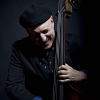






 Buy Now
Buy Now




